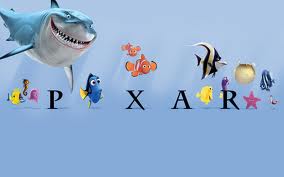Transferable Excellence
I read a really neat piece on the Fast Company CoDesign site last week about Pixar, describing some of the secrets, or really philosophies that form much of the foundation for their success. The piece, titled 'The Inside Story: 5 Secrets To Pixar's Success', details the some of the recollections of Pixar's former Chief Technical Officer, Owen Jacob. These kinds of articles are usually have only limited value and application to the broader business world, as often the 'secret sauce' of a Pixar or a Zappos or an Apple are nearly impossible to duplicate outside of those unique and distinct environments and cultures. Or some of the secrets really aren't secrets at all, just common and common sense approaches to customer service or design or communication that for one reason or another these companies manage to execute more effectively than most.
In the CoDesign piece about Pixar, most of the ideas weren't those not-really-secrets and rather were kind of interesting and a little unexpected. Among them were advice on letting your work rather than your words speak for themselves, admitting when an idea or project needs to be scrapped and re-started, and understanding the importance of the medium when transmitting your messages.
But it is the last 'secret' was the one most intriguing, and the one most traditionally associated with human resources and recruiting - Hire For Excellence. Of course many if not most organizations, at least on the surface, attempt to hire for excellence, but only as it is normally defined and interpreted. That is by carefully matching resumes and experiences with job requirements, interviewing to get a sense of the candidate's process and approaches to solving problems, and perhaps assessing more ambiguous interpretations of cultural fit. But no matter the specifics of the process, all organizations try to make the best matches when filling their open positions.
What is different, and secret, about Pixar's definition of hiring for excellence it their broader, more expansive view of excellence. According to the CoDesign piece, the 'excellence' they are looking for is not limited to the job spec, or in some kind of pre-defined assessment, but rather this:
It doesn’t matter what you are excellent at, just that you have reached a level of excellence. It’s important that you know what excellence feels like and what it takes to achieve it. It could be gardening, jujitsu, or cooking. The main thing is you’ve had a taste of excellence and will know how to get there again.
Definitely a different take than most of the standard processes we have in place for identifying and assessing candidates. While in the interview or screening processes, we might (briefly) look at or consider someone's 'non-essential' interests or skills as a data point in the process, we almost never think of these activities as a kind of predictor of on the job success, and rarely consider what achieving excellence in the real world could mean inside our own organizations.
So what do you think? Is demonstrated excellence at something, anything as good or better than the 'right' experiences, skills, and education?

 Steve
Steve